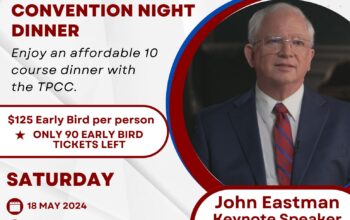Progressives can teach conservatives how to win elections. It is not about money, it is about people, messaging and volunteers.
“An estimated 250 volunteers trekked up and down the streets within the district before the primary, knocking on 85,000 doors, Torres said. And in a break from typical campaign tactics, Jurado did not send out bulk mailers, except for 3,000 postcards handwritten by campaign staff.
“Nothing beats having one-on-one conversations with folks at their door and them really being felt listened to, feeling respected,” Torres said. “It was all gas, no breaks to make sure we were able to secure a win.”
That was one race—NO mailers—just workers. We should stop looking at the money raised by our candidates—look at the volunteers they have instead.
L.A. candidates fared well in primary
By Frank Stoltze, LA1st, 3/19/24 https://laist.com/brief/news/politics/la-progressive-candidates-primary-november-forecast
Despite being outspent in nearly every race, progressive candidates in Los Angeles made a strong showing in the March 5 election, with several either winning outright or forcing opponents into runoffs.
The results, though surprising to some, suggest L.A.’s political shift to the left shows little sign of slowing.
“I’m personally shocked at how well progressives did,” said David Levitus of left-leaning activist group L.A. Forward. “I was very nervous in the weeks leading up to this election just because of the low turnout.”
In what some experts say is a maturing of the progressive movement, candidates and organizations were able to stage strong grassroots door-knocking efforts across multiple campaigns. One organization launched an independent expenditure campaign for the first time, sending out mailers to counteract a negative campaign against a progressive candidate by the police union.
Progressive candidates also argue their message is resonating with voters. It’s a message that focuses on increasing tenants rights and more aggressively building affordable housing; decreasing the use of an anti-camping law against unhoused people; shrinking the size of the L.A. Police Department’s budget; expanding environmental protections; and increasing efforts to combat climate change.
It was also an anti-establishment message in an age of growing cynicism toward politics.
“I think that people were ready for change,” said candidate Jillian Burgos, who is headed for a runoff against a better funded candidate in District 2. “I think that they are tired of the status quo.”
How candidates fared in key races
Voter turnout in the Primary Election was just 29%. Low turnout elections tend to attract older and more conservative voters.
But progressives did well, as shown in the following races:
- L.A. Councilmember Nithya Raman was reelected in the 4th Council District, beating back a challenge by the better funded Deputy City Attorney Ethan Weaver;
- Tenant rights attorney Ysabel Jurado finished first in a crowded field in the 14th Council District and has forced incumbent Councilmember Kevin de León into a runoff;
- Burgos, a North Hollywood Neighborhood Council member, forced former Assemblymember Adrin Nazarian into a runoff in the 2nd District;
- The citizen-led Healthy Streets Initiative, which will require billions of dollars in investment into more bike and bus lanes as well as street safety measures, overwhelmingly passed with 65% of the vote;
- Deputy public defenders performed well in superior court judge races, with one beating an incumbent judge and three others winning spots in November runoffs. Three of the four were part of a progressive slate called The Defenders of Justice.
Progressives ran strong campaigns, particularly on the ground, observers said, with District 14 serving as one example.
Janet Torres, campaign field director for Jurado, recalled dispatching campaign volunteers to walk door-to-door to talk up the candidate and her platform. The district includes relatively flat downtown L.A. and Boyle Heights but also hilly El Sereno, Highland Park and Eagle Rock.
“The terrain in CD14 is tough,” Torres said.
An estimated 250 volunteers trekked up and down the streets within the district before the primary, knocking on 85,000 doors, Torres said. And in a break from typical campaign tactics, Jurado did not send out bulk mailers, except for 3,000 postcards handwritten by campaign staff.
“Nothing beats having one-on-one conversations with folks at their door and them really being felt listened to, feeling respected,” Torres said. “It was all gas, no breaks to make sure we were able to secure a win.”
De León, who was elected to the city council in 2020, finished election night on March 5 ahead of his challengers, but that lead eroded over the next several days as more votes were counted. Jurado surpassed him in the vote count late last week.
The margin between the two candidates was small — roughly 400 votes as of Monday evening — but De León is a politically wounded incumbent.
In October 2022, he was heard on a secretly recorded audio tape engaging in a conversation that included racist and derogatory remarks. He apologized but most of the Democratic establishment had called on him to resign, including President Joe Biden.
Jurado said her campaign “consistently emphasized the marginalized voices in the district — folks that have felt forgotten and not listened to.”
Meghan Choi of Ground Game L.A., one of the groups whose members walked precincts for Jurado and other candidates, said her group and others have worked to build the progressive movement in Los Angeles.
“We’re really excited to see that there is in fact so much appetite for real change coming from Angelenos,” Choi said.
Taking a more personal — but labor intensive — approach to campaigning seems to have paid off, at least so far.
“They have gone back to basics — and that is the ground game,” said Fernando Guerra, professor of political science at the Center for the Study of Los Angeles at Loyola Marymount University. “They have mastered how to do it. It’s incredibly difficult to implement but they’re doing it.”
Political action groups help fight ‘fire with fire’
In Jurado’s case, according to her campaign field director, there was a cadre of young people willing to walk the district. Torres said groups including Ground Game L.A., Boyle Heights Vota, Sunrise Movement, The Alliance of Californians for Community Empowerment, and Democratic Socialists of America helped walk precincts.
Jurado overcame massive spending on behalf of one of her opponents, Assemblymember Miguel Santiago, who ended up finishing third in the primary. Santiago’s campaign was bolstered by nearly $700,000 in independent expenditures on his behalf — mostly by labor unions who supported his work in Sacramento.
Raman faced more than $1.3 million in independent expenditures against her, including by the police and firefighters unions, real estate interests, and the Hollywood Chamber of Commerce.
In Raman’s case, progressives decided to “fight fire with fire,” said Levitus, from L.A. Forward.
For the first time, the organization launched its own independent expenditure campaign. on behalf of Raman. It spent $300,000 on her behalf, mostly on mailers.
Unite Here Local 11, the hotel and restaurants workers union, also spent $100,000, mostly on get-out-the-vote efforts for Raman.
Raman won reelection outright with 50.64% percent of the vote. It was just a few hundred votes that put her over 50%, allowing her to avoid a runoff in November against her closest challenger, Ethan Weaver.
“Given how close the vote was, I have very little doubt that she would have probably ended up under 50% had it not been for what we did,” Levitus said.
Levitus also said progressive voter guides are having a growing influence on voters.
He pointed to guides from his own organization, Knock L.A. and L.A. Progressive, as well as from individual influencers like televisionT.V. writer and comedian Adam Conover, who is active in politics.
Conover has more than 350,000 followers on Instagram.
The voter guides can be particularly influential in judicial races, where candidates had little money to get their message out.
“We’re making these races competitive,” said Ivette Alé-Ferlito of La Defensa, which campaigned on behalf of judges. “All of this political education we’ve been doing has catapulted judicial races into the public sphere.”
L.A. Forward in recent years also began a judicial leadership academy that trains people to be candidates for judicial seats.
One of the City Council candidates endorsed by those guides was Burgos, who finished second and made it into the runoff in District 2 despite being far outspent by her opponents. Burgos is an optician, owner of the North Hollywood theater company Dainty Dames Events, and a member of the North Hollywood Neighborhood Council.
Burgos also pointed to endorsements and volunteer help from L.A. Forward, Streets for All, Feel The Bern San Fernando Valley, and California Women’s List.
“They just really put the time in for us,” she said.
And she echoed a familiar theme.
“We made sure to knock doors, really have those conversations with people. Our people were passionate,” she said.
Burgos said she believes her social media campaign was effective, too. She produced Tik Tok and Instagram reels that not only promoted her candidacy but were also instructive about city governance.
“I would talk about how to use 311, how to report a pothole, how city council works, different things that really teach the community,” she said. “A lot of people gave us good feedback about the topics. I pretty much make a reel every day,”
Looking forward to November
Despite those successes, progressive didn’t fare well in all races.
In the more conservative 12th City Council District race in the western San Fernando Valley, incumbent John Lee won reelection handily, beating back a challenge by former Ethics Commission President Serena Oberstein.
In the 10th District, which covers Koreatown, mid-Wilshire and Leimert Park, pastor and community organizer Eddie Anderson finished with 19% of the vote and out of the runoff.
Progressive L.A. County District Attorney George Gascón garnered just 25% of the vote and was forced into a runoff with former Republican state attorney general candidate Nathan Hochman. Gascón’s showing was low for an incumbent and it shows November may be a big challenge for him.
Gascón has faced withering criticism for his policy of reducing criminal penalties to address mass incarceration.
The March results have progressive leaders like L.A. City Councilmember Hugo Soto-Martinez optimistic about the general election.
“The appetite for progressive bold policy is stronger than I thought,” he said.
And some say progressive candidates may expect to fare even better in November when more voters, young people in particular, are expected to cast ballots.
“The electorate has embraced some of these progressive reforms,” said Sara Sadhwani, assistant professor of politics at Pomona College. “Although I think we will see just how far they have done so come November.”



